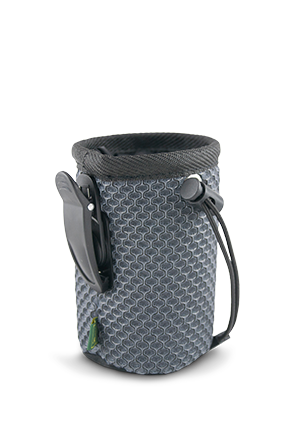Helpful tips for a holiday with your dog
Spring has arrived and for many people, this is also when the holiday season starts. To ensure you can relax as hoped on a holiday with your dog, there are a few things to keep in mind. We have put together a few tips on the subject for you.
Things to consider before your trip
The first and most important decision is the very first thing you need to consider: the choice of destination. Here, it is essential that you consider the needs of your dog. Is there enough space for them to exercise on site? How is the climate? How will you get there? Are dogs allowed and which requirements, if any, must be met (e.g. dogs on the beach and in restaurants)? Are there infectious diseases or harmful parasites in this area?
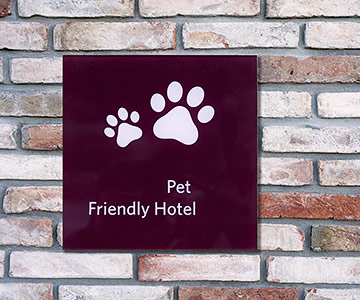
Local accommodation
Another important point is whether dogs are accepted at the accommodation. You really need to clarify in advance whether dogs are allowed in the hotel, the holiday accommodation or on the campsite – and, where applicable, which special rules apply for dogs. Do you have to observe certain regulations, e.g. walking the dog on a lead or ensuring it wears a muzzle? Is there also a special dog beach where your four-legged friend can be let off the lead?
The journey
The simplest and usually the most cost-effective way to travel is in your own car. That way, you’ll have enough space, you can pack all the things you’ll need, and you can decide on break times. If your dog is not used to travelling in a car, you’ll need to familiarise them with it, long before you travel. It is advisable to take your dog on lots of shorter trips to beautiful destinations, which your dog will then associate with the journey and see travel by car as something positive.
Most dogs are enthusiastic or, at least, patient passengers from an early age. Nevertheless, if you are on the road for a long time, plan sufficient breaks so that the journey to your holiday destination doesn’t become a nightmare for your four-legged friend. Draughts should also be avoided when driving over a long period of time, as they can damage the dog’s eyes.
The best place for the dog is behind a mesh dog guard in the boot or buckled up on the back seat. Small dogs can also be accommodated in a transport box; however, you should have already got the dog used to this box at home.
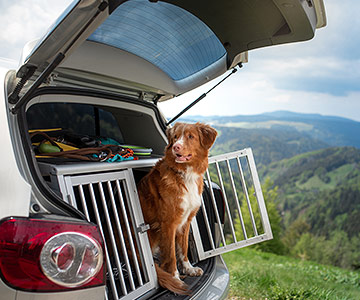
Please never forget to take enough water for the journey. During holiday periods there is always the risk of traffic jams and in the car, summer temperatures increase the need to take on more fluids. Conversely, don’t give your dog much, if any, food just before setting off. It is advisable to not give your dog any more food for four hours before leaving.
It is very important that you take adequate breaks. Don’t leave your dog alone in the car in the summer – not even for a short period of time. In just a few minutes, the inside of the car can heat up to extreme levels and even if you leave windows ajar, it certainly won’t be enough to ventilate it.
Another good option for getting to your holiday destination is to travel by train – provided your dog is already used to it. Don’t forget: aside from dogs in transport boxes and certain assistance dogs, it is generally mandatory to muzzle your dog and keep it on a lead on train journeys. When planning your trip, please take into account that your dog might have to wait a long time for their next walk. Therefore, before the train journey, you should take your dog for a walk every two hours and not give them any food for 12 hours beforehand.
A flight needs to be well thought through. If your dog weighs up to approx. 5 kg (depending on the airline), you are allowed to take them in the cabin in a special transport bag, as long as it does not exceed the standard dimensions for hand luggage. Don’t forget that on longer flights, the dog will not be allowed to come out of the bag, and will have to spend the whole flight under the seat. It is therefore advisable for the dog to practice being quiet in the bag beforehand. Dogs that weigh more than the permitted cabin weight must travel in their own special flight box in the hold. When choosing the right box, make sure that your pet can lie, sit, stand and turn around comfortably in it. However, generally speaking, this way of travelling is highly stressful for your pet and so the flight should only be the transport of choice in exceptional cases.
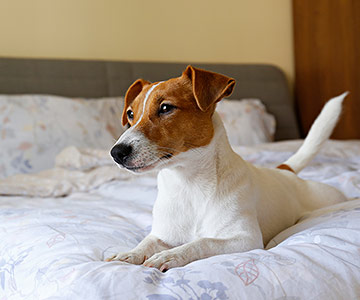
The right dog food
It is advisable to always take sufficient amount of dog food for your four-legged friend. Their usual dog food may often not be available in the holiday region, and most dogs are sensitive to a change in food. This could result in diarrhoea, constipation, mushy faeces, a loss of appetite or intolerances - you should avoid this during your holiday, which is supposed to be the best time of year. Please be aware, that when travelling abroad, Dairy, Meat and Meat derived products cannot be taken into the EU, this includes dog food. https://europa.eu/youreurope/citizens/travel/carry/meat-dairy-animal/index_en.htm
Vaccinations
Don’t forget about vaccinations, either! Each country has specific guidelines that must be observed. Ask your vet in good time so that, if necessary, you can give your dog a vaccination booster. When travelling abroad, it is advisable to take the necessary documents with you in English as well.
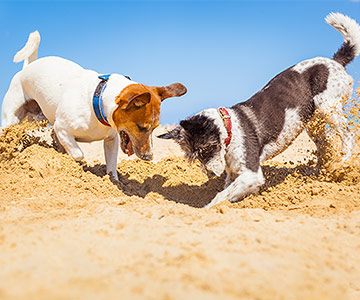
First-aid kit
When on holiday, you should always have easy access to the most important medicines and remedies at the very least. These include:
- The dog’s usual medicine, if applicable
- Remedy for travel sickness/sedative
- Medicine for diarrhoea (e.g. charcoal tablets)
- Wound spray and/or disinfectant
- Dressing material
- Eye drops and eye wipes for cleaning eyes
- Ear drops
- Flea and tick collar
- Tick pliers
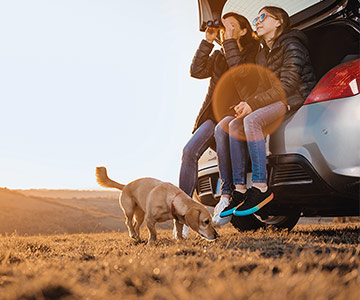
Don’t forget
Here is a short checklist of the things you should not forget under any circumstances:
- Lead & muzzle
- EU pet passport
- Mobile drinking bowl
- Dog travel first-aid kit
- Usual dog blanket and toys
- Hand towel
- Sun protection for the beach
- Usual dog food and food bowl
- Dog poop bags
Please be aware that since Brexit, the Pet Passports are no longer valid. For travel to the EU the dogs must have a microchip, rabies vaccination and have an AHC, which currently costs anywhere from £99 to £350 dependent on the vet http://apha.defra.gov.uk/External_OV_Instructions/Export_Instructions/Certification_Procedures/Small_Animal_Exports/index.htm
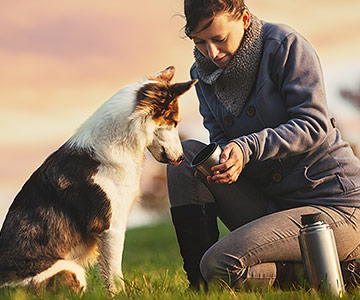
Last but not least
Not wanting to go on holiday with your four-legged friend does not necessarily make you a bad dog owner. Depending on your destination and what you want to do there, you are not always doing your dog a favour by taking them with you. But if they have to stay at home, then the best thing you can do is leave them with a friend or relative who knows and respects your dog and who can also handle them properly. This means you can all have a relaxing time.
Enjoy your holiday!
Product recommendation
The benefits of PLATINUM dog food
- PLATINUM uses a unique preparation method called FSG, which offers numerous advantages compared to conventional dog food.
- Dog food prepared with FSG is gently cooked only in its own meat juice and is therefore nutrient-rich like BARF, excellent for building muscles and also extra tasty for your dog.
- With at least 70% fresh meat in the dry dog food and 83% fresh meat or fresh fish in the wet dog food, PLATINUM places great value on a composition of the food that is adapted to the needs of dogs.
- The declaration and composition of dog food prepared with FSG is tested regularly and independently by ELAB Analytik GmbH (formerly TÜV SÜD ELAB) - for canine health protection.
- PLATINUM is generally very well accepted by dogs of all breeds and ages. Even four-legged friends with sensitive digestion or intolerances usually tolerate PLATINUM dog food well.
- All products are free of soya, GMOs and gluten. In addition, no flavour enhancers, attractants, odourants or colourings are used.
- Over 2,000 positive customer reviews at Trusted Shops speak for themselves!





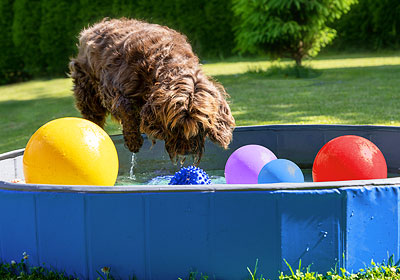





.png)
.png)
